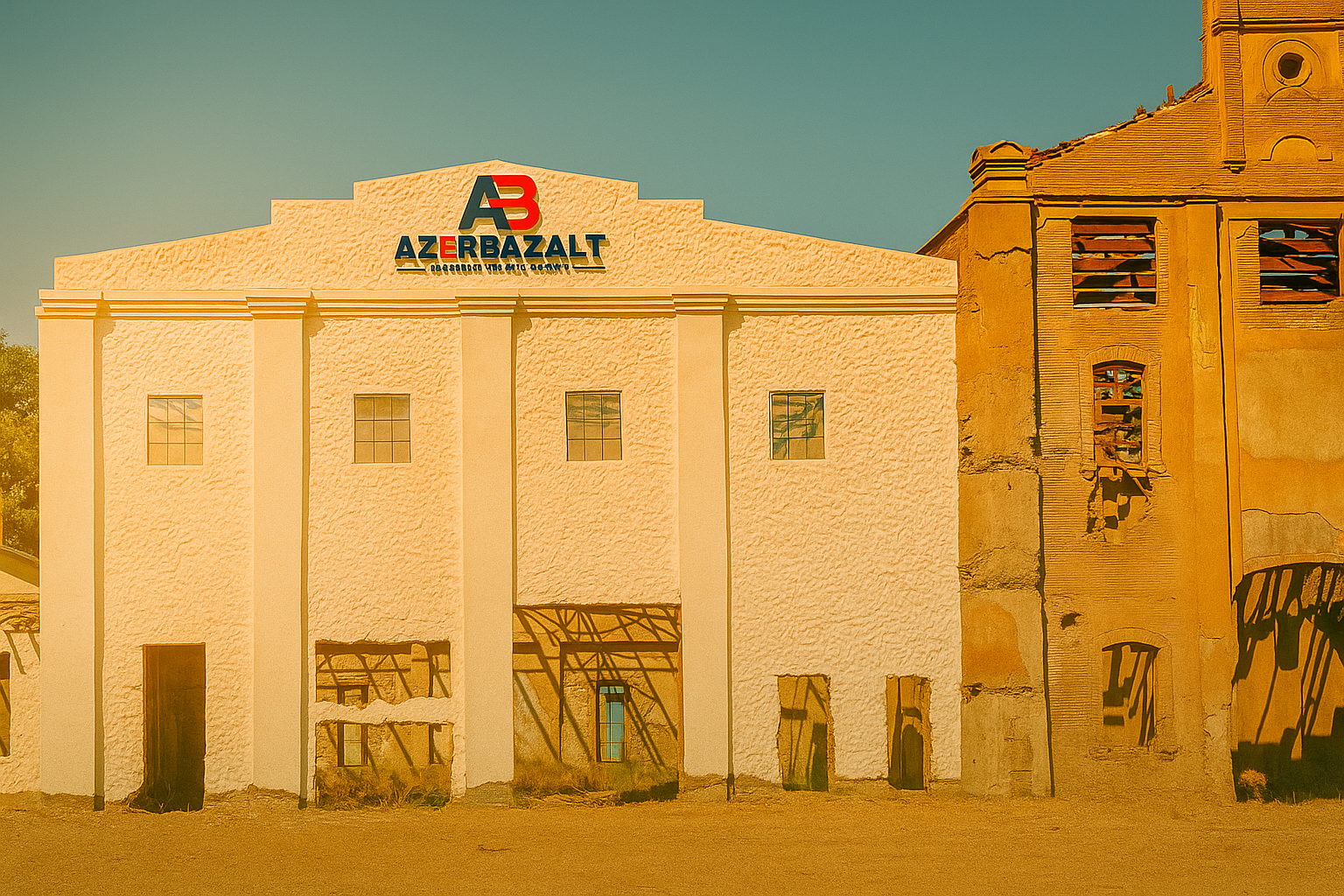President Ilham Aliyev and First Lady Mehriban Aliyeva’s participation in the groundbreaking of a new basalt products manufacturing facility in Ganja signals not only the government’s continued emphasis on industrial diversification but also its broader strategy of embedding regional cities into Azerbaijan’s economic modernisation drive.
The plant, to be operated by “Azerbazalt” LLC, is designed to produce up to 360,000 tons of organic fertiliser annually, positioning Azerbaijan to strengthen its agricultural base with locally produced, value-added inputs. By using basalt powder as the primary raw material, the enterprise introduces an innovative approach to soil enrichment, one that could reduce dependency on imported fertilisers and align with the country’s sustainability agenda.
The project’s phased implementation, with an initial $15.9 million investment, reflects a cautious yet deliberate scaling model. The involvement of the Azerbaijan Business Development Fund, holding a 30 per cent stake, underscores the state’s role in de-risking private investment while ensuring strategic oversight of key industrial ventures.
Beyond its technical and financial metrics, the facility’s establishment on 4 hectares and the creation of 200 permanent jobs in its first stage highlight Ganja’s evolving role as an economic hub. This move aligns with Baku’s policy of dispersing industrial activity beyond the capital, reducing regional disparities, and fostering inclusive growth across Azerbaijan.
Built with advanced Swedish and Turkish technologies, the plant will rely on high-quality basalt extracted from the “Chaykend” deposit in Azerbaijan’s Goygol region.
In its second phase, the plant will expand production to advanced basalt-based products, including basalt fibre, filament (used as a raw material for 3D printing), and other industrial applications. This stage is projected to generate around 300 additional jobs, while boosting Azerbaijan’s defence, construction, and high-tech sectors with sustainable and durable materials.
The output is intended to serve both domestic demand and global export markets, with high-tech basalt products already seeing growing demand worldwide.
Basalt-based materials are considered environmentally friendly, multifunctional, and high-value resources for both agriculture and industry. Volcanic basalt powder, rich in minerals, restores soil nutrients, improves structure, enhances productivity, and helps prevent water acidification. Basalt fibers, on the other hand, are used in advanced production of filtration systems, heat- and corrosion-resistant coatings, additives for concrete, and other long-lasting construction materials. Due to their heat resistance and durability, basalt fibres are increasingly applied in aviation, defense, rocketry, and automotive industries.
Speaking to Azernews about the new endeavour, economist Eldaniz Amirov noted:
“From an economic point of view, the main importance of this enterprise is that our natural resources are converted into added value within the country. Azerbaijan’s subsoil resources are not limited to oil and gas; our country is also very rich in minerals. The conversion of these resources into finished products, rather than selling them as raw materials, strengthens the domestic market and increases export opportunities. At the same time, an environmentally friendly and sustainable production model creates long-term economic stability and strengthens Azerbaijan’s position in the value chain.
However, there are also risks in the operation of such enterprises. Changes in market demand, the sustainability of technological processes, violation of environmental standards, and most importantly, the emergence of administrative and bureaucratic obstacles are considered the main risks to the sustainability of such enterprises. If these risks are managed properly, if the state's role as a supporter and facilitator is preserved, rather than excessive intervention in the later stages, and if the entrepreneur is given the opportunity to make free decisions and act as a market player, such projects will be more sustainable and make a real contribution to the economy.”

